Sometimes called “coping skills”, defence mechanisms are the psychological tactics we use to cope with situations that cause anxiety or distress. Each of us employs a mixture of different strategies in different amounts, and this can change over time.
First described by Anna Freud, many different psychologists have had a crack at describing them. Depending on which textbook you read you could be faced with dozens of descriptors all categorised in different ways. We’ve gathered the most common ones here, and put them in a spectrum – from maladaptive to adaptive. “Maladaptive” defences are those which are more basic, instinctual, and not very useful in the long term. Use too much of any of them and it may result in difficulties coping, or could lead to relationship breakdowns and problems with work, socialising, and functioning on a daily basis.
Conversely, the adaptive defence mechanisms are more mature, conscious and productive. You know that person who seems to be impervious to the stresses of the world? That breezes through life as though it was easy? They probably use a selection of adaptive coping skills.
If you struggle to cope, find yourself experiencing high levels of distress frequently, or compartmentalise emotions and actually feeling numb to things which should be upsetting, you may benefit from exploring your toolbox of coping mechanisms. Everyone uses a few different ones, and everyone has the capacity to learn more adaptive techniques. The first step is to understand what defence mechanisms are, and to help with that, we’ve applied them to examples in our favourite video games.
“Maladaptive” defences are those which are more basic, instinctual, and not very useful in the long term.
EXAMPLE: Tim, Braid
© Jonathan Blow
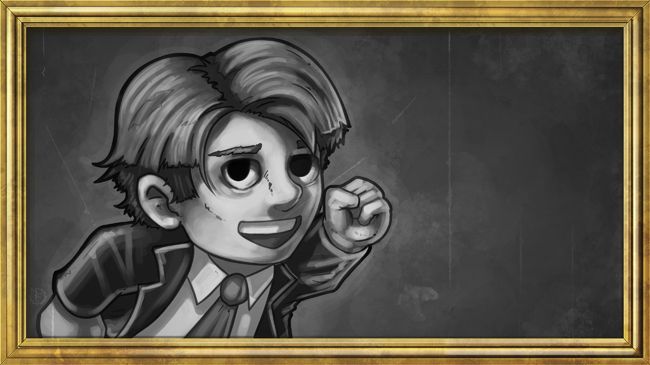
Most frequently associated with the five stages of grief, denial is a super deep and instinctive defence mechanism, one of the most basic of all. During denial, a person will simply not be able to accept the fact leading to their distressing emotional response, to protect themselves from feeling it. This is not conscious and cannot be chosen, and it can persist even when frank evidence of the event is given to them.
A couple of classic (albeit non video-game related) examples are seen in Harry Potter and Game of Thrones. Throughout the entirety of Order of the Phoenix, Cornelius Fudge outright denies that Voldemort has returned, despite overwhelming evidence to the contrary. It is not until seeing The Dark Lord with his own eyes that he finally accepts.
In the HBO Game of Thrones (I’m not sure if it also happens in the books), there is a battle at Castle Black between the Night’s Watch and the Wildlings. Jon Snow tells Janos Slynt the gate won’t withstand a giant, to which Janos replies, “Giants don’t exist,” even whilst looking directly at several of them.
In both these examples it is fear for their lives that prevents these characters from acknowledging the threat. The case of Tim in Jonathan Blow’s indie game Braid is slightly different. The clever twist in this time-bending puzzle is that the princess you’ve been pursuing the whole game has actually been escaping from you. In persisting, Tim shows he is unable to accept that their relationship is over. Instead, he has constructed a fantastical tale to explain her absence, thereby alleviating himself of any responsibility or guilt, and refusing to initiate the incredibly painful process of grieving his loss.
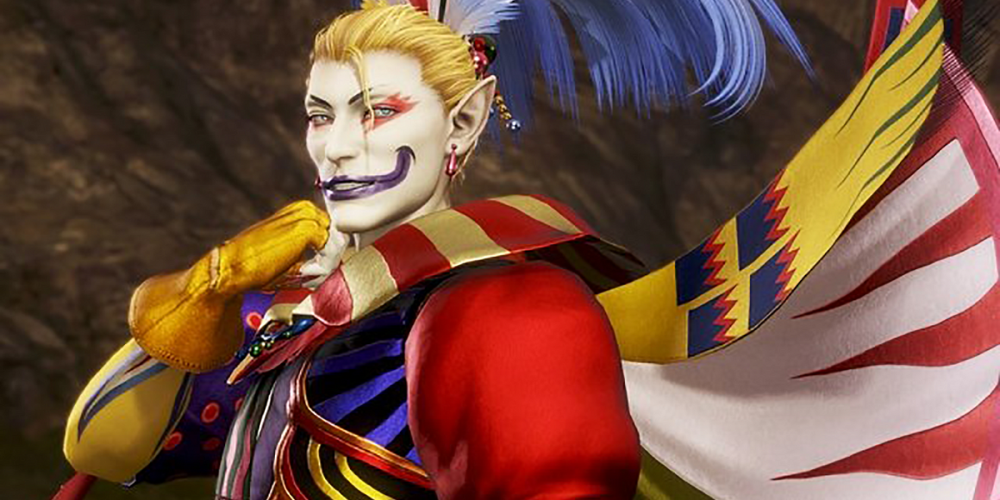
EXAMPLE: Kefka, Final Fantasy VI (Japanese Version)
© Square Enix
When people are overwhelmed by emotions that are difficult experiences as an adult, they may “turn back the clock” to a psychological age that is much younger. They don’t necessarily have to behave like a child in all aspects of their life, but may start exhibiting some sort of childlike trait, like becoming increasingly clingy, dependent or having tantrums.
It was hard to find a good example in games of a character regressing in an accurate way. Of course, I haven’t played all the games, but I had a good look. Leslie from The Evil Within was suggested, but looking at the full story it seems like his behavioural pattern is consistent with early trauma and intellectual disability, in addition to something resembling the “artistic licence” version of a catatonic state. I have fallen to Kefka because of his childlike lack of empathy, playful nature and the fact that he refers to himself as “Boku-chan” in the JP version of the game – a term reserved for young boys.
EXAMPLE: Chloe, Life is Strange
© DONTNOD
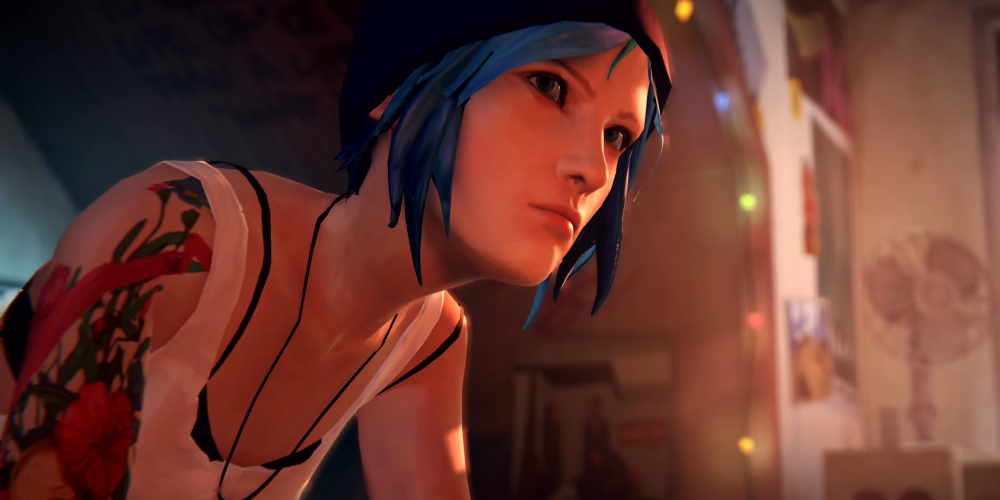
During childhood we all experience big emotions. From anger to fear, anxiety to excitement, one look at a toddler can show how powerful these early feelings can be. Part of growing up is learning to regulate them, but this can be tough for those who aren’t shown a consistent model of how to do that, or if significant trauma has interrupted the process. What is left for the adult are huge, overwhelming emotions and limited means of what we call self-soothing. Feelings bubble over to the point of being unbearable. Commonly at this point the only way of achieving relief is releasing those emotions in a more physical way. For Chloe there are several indicators of this, including angry outbursts and self-destructive behaviour.
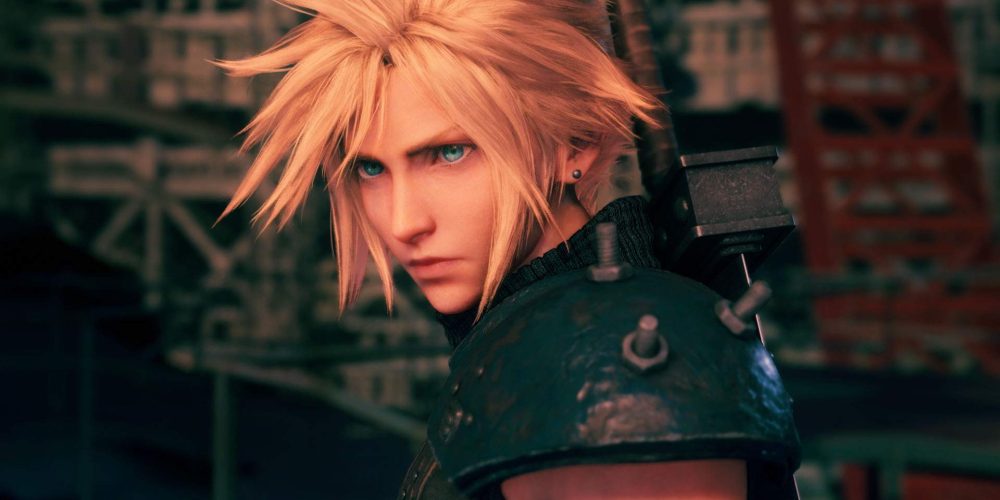
EXAMPLE: Cloud Strife, Final Fantasy VII
© Square Enix
Dissociative states are bought on in vulnerable individuals who cannot cope with their current reality, and so do not experience it. It exists on a spectrum, which can vary from healthy to pathological. A mild form of dissociation could be feeling numb and detached. Many people feel a chronic sense of depersonalisation, like their world isn’t quite real. And finally there are the more significant “fugue states”, which is ironically the one focused on most in portrayals. It is very rare and grossly exaggerated for the purposes of plot device and character twists in media (think Norman Bates in Psycho).
I have previously written an article about Cloud and how he subconsciously adopts Zach’s identity as a self-defence mechanism when his world is shattered. This goes beyond what we generally see in reality, but it is a more sympathetic and understandable representation of this overused trope so I’ll let it slide for the purposes of education.
EXAMPLE: James Sunderland, Silent Hill 2
© Konami
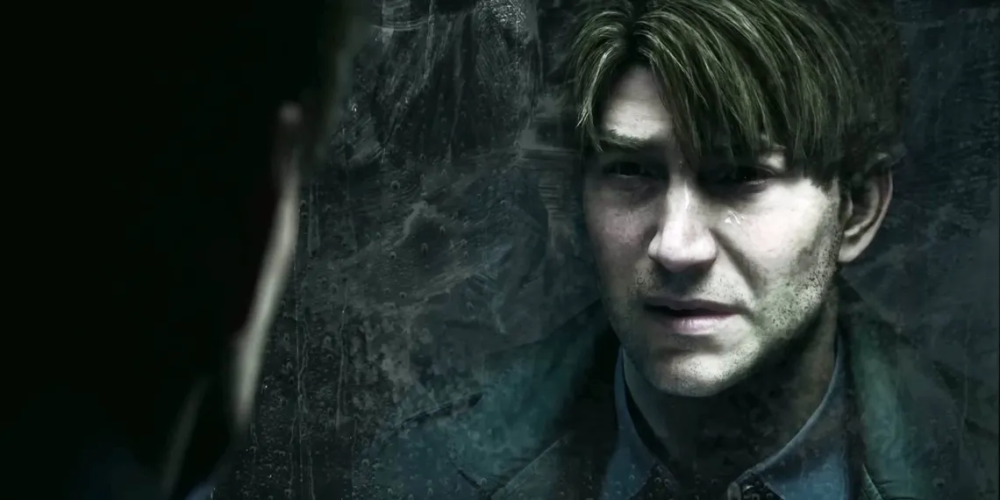
Just about everybody in Silent Hill 2 seems to be repressing something (I guess that’s kinda the point of the town). With the exception of Laura, no one is quite up to speed on their own recent history. James, of course, has constructed a whole fantastical mythology around his deceased wife, believing that she died of an illness three years ago. The truth is, he murdered her three weeks ago, to provide her (and himself) with relief from pain. Angela and Eddie both have crimes they must confront too, and all three characters ultimately face their demons – literally as well as metaphorically.
Repression is one of the more commonly known defense mechanisms, and the term “repressed memory” gets thrown around often. It is actually relatively common, particularly in severe childhood trauma. Instead of acknowledging the unbearable truth of what has happened, the brain simply puts it in a box, inaccessible to the conscious mind. The unconscious can still access it, however, and so the emotional damage of the trauma is never actually addressed. We can use Silent Hill 2 as a very eloquent example of this being represented artistically; though the characters cannot remember what they have done, they experience the effects of it in a very tangible way through the world around them. From James and the Pyramid Head to Angela and the everlasting fire around her, each person in Silent Hill must carry with them the effects of their trauma.
The key here is that when James sees the tape, he remembers what he has done and acknowledges it consciously. If he was in denial, he could watch the tape but would still say she had died three years ago of an illness, even whilst being shown an actual video of him killing her.
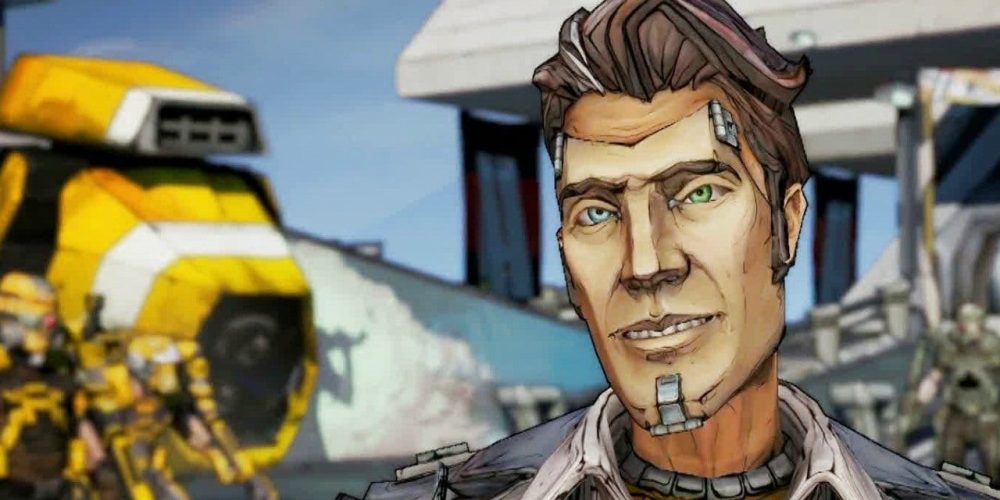
EXAMPLE: Handsome Jack, Borderlands VII
© Telltale Games
We are complex creatures, driven by several instinctive impulses simultaneously which we must understand and process in order to function within society. We learn not to hit when we are angry, not to scream when we are upset, and ultimately, to reign in and moderate those feelings of anger and distress in the first place.
Projection is occurring when a person accuses another of an undesirable feeling or inappropriate behaviour, but actually they are the one experiencing it. For example, they angrily shout, “Don’t yell at me, you’re so mad!”
I call this “mental gymnastics” – using others as a scapegoat for anything that makes us feel uncomfortable about ourselves, or bring shame and guilt.
Handsome Jack seems to hate the world and everything in it, for the mere fact it represents what he hates about himself. He chastises the player for acts he has himself committed (such as murder), and is able to reconcile this cognitive dissonance in his mind using compartmentalisation.
EXAMPLE: Joel, The Last of Us
© Naughty Dog
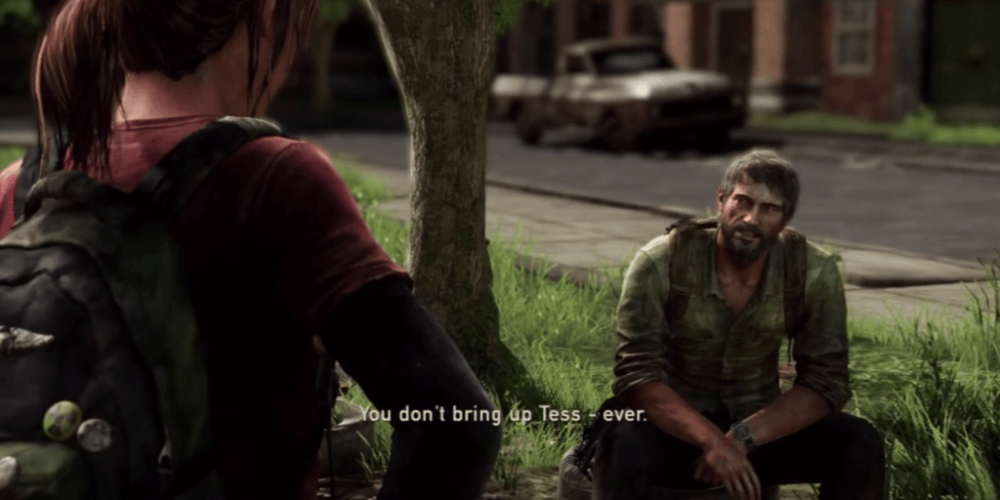
Reaction formation can seem like a mature coping mechanism, but for the impact it has on the person and those around them. Reaction formation is a fancy way of saying “feeling one thing and doing the opposite”. A great example of this in The Last of Us is in the scene after Ellie runs off from Tommy’s dam. She hides out in a cabin bedroom where Joel confronts her angrily. Is he truly annoyed that she behaved recklessly when her life is worth so much? Doubtful, he didn’t really care about that previously. The more acute emotion is one of guilt. Guilt for handing Ellie over to Tommy, guilt for feeling relieved about it, and guilt that he cannot commit to the whole journey because of how much Ellie reminds him of his daughter. The relationship that is forming there terrifies him. Instead of confronting all of these difficult and conflicting feelings, he responds with the opposite – rage and resentment.
Notably he quickly flip-flops on this and makes the decision to take her to the Fireflies himself. This could also be an example of undoing, another defence mechanism we won’t go into today!
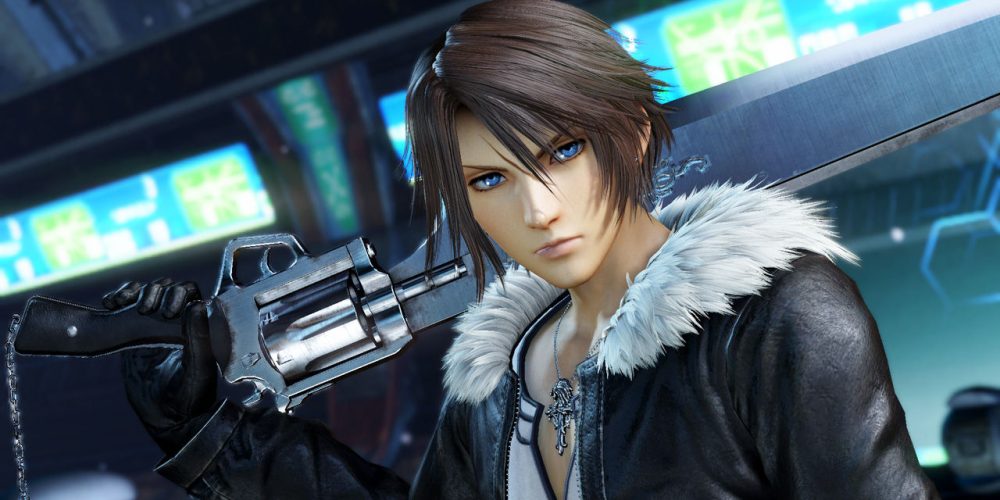
EXAMPLE: Squall Leonhart, Final Fantasy VIII
© Square Enix
Being able to see Squall’s internal monologue throughout FFVIII provides a really powerful and balanced insight into the pros and cons of intellectualisation as a defence. It describes the act of analysing every stressor through a purely logical lens, removing all emotion and seeing it like Spock would. At times this is very useful – it allows Squall to be an excellent leader, containing and soothing the anxieties of his team with ease. He is an efficient strategist, as his purely objective perspective enables him to see situations the way others can’t. However, it ultimately is his biggest weakness.
Squall carries with him some pretty significant self-doubt and insecurity. He constantly judges others (often exhibiting projection). Eventually his defence of rationalising everything fails, because anxiety isn’t rational. He gets stuck in this vicious cycle of rumination, trying desperately to think his way out of his own emotions, and repeatedly failing because, well, they’re emotions. He actually ends up curled up in bed going over the same thing over and over and over, too confused and distressed to actually do anything. It isn’t until he learns some more productive coping skills that he can continue on, accepting his vulnerabilities and the risks he will face, finally acknowledging the fact he may fail – but must try anyway.
Mature coping skills are those which benefit us. They are also descibed as “healthy” or “adaptive”.
EXAMPLE: Henry, Firewatch
© Campo Santo

We all have thoughts, feelings and impulses that are not socially acceptable. Whether it be rage or sex or something else, this is human nature, and it is how we deal with it that matters. Sublimation is a descriptor for dealing with unacceptable impulses using an acceptable behaviour. The classic example is an angry person playing rugby. The physicality of the sport allows him to channel the rage he feels without it being destructive to him or others.
I struggled to find a valuable example within video games but Henry seemed to fit. Our troubled protagonist isn’t necessarily ready to deal with the stress of his marriage or the abandonment of his wife, but instead seeks solace and a time for contemplation in the watchtower.
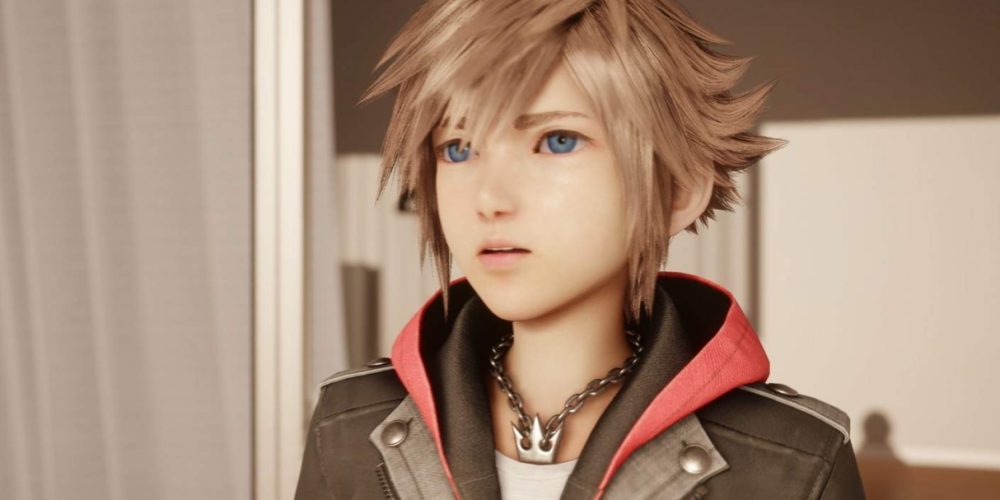
EXAMPLE: Sora, Kingdom Hearts
© Square Enix
Compensation is a great way of accepting ourselves as balanced individuals, composed of strengths and weaknesses. We’re all good at some things and not so great at others. For example, I was always pretty good at science, but have never been any good at sport no matter how hard I try. And that’s okay! This is a way being okay with imperfection. It’s also a good start when making up for personal inadequacies – we’re all a work in progress, and whilst we develop one aspect that needs improvement it’s good to keep up morale by being happy about something else.
Sora is like, one of the most grounded characters I’ve ever seen, it’s so funny. Particularly after his experience becoming a heartless, he has a sense of realism and humility in him that you don’t often see. He understands that he has weaknesses, and that he can’t be perfect all the time, and he leans on his strengths in those times. Namely, the friendships he has made with those around him, and his strength to persist even in the darkest times. I kind of love Sore, his fantastical optimism sometimes can hold a real power.
EXAMPLE: Link, The Legend of Zelda Series
© Nintendo
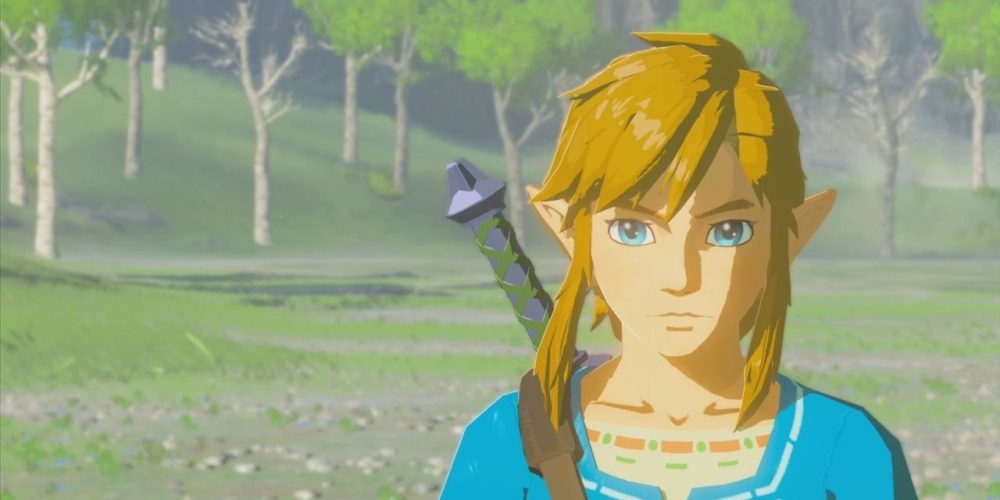
When we suffer a challenging situation and make a conscious decision to delay paying attention to a thought, emotion, or need in order to cope with the present reality, that is suppression. This helps us bear the unbearable, to make it through safely and it helps us to accept those feelings of distress at a later time so that they have been dealt with.
The reason I’ve chosen Link for this one is because of a really cool revelation in Breath of the Wild, which I discussed in this article. He has always been a silent protagonist, if you choose to believe that the cartoon TV series doesn’t exist, which would be an example of using denial in a healthy way. And after something like 25 years of silence, we finally know why.
Link chooses to hold his tongue for the sake of everyone around him. He is able to quash the anxiety and pressure that comes with being the Hero of Time, to take the burden of the entire kingdom’s fate, and take it with an attitude that says, “Everything is going to be fine”. This important role helps Hyrule to continue to function even whilst under almost constant threat.
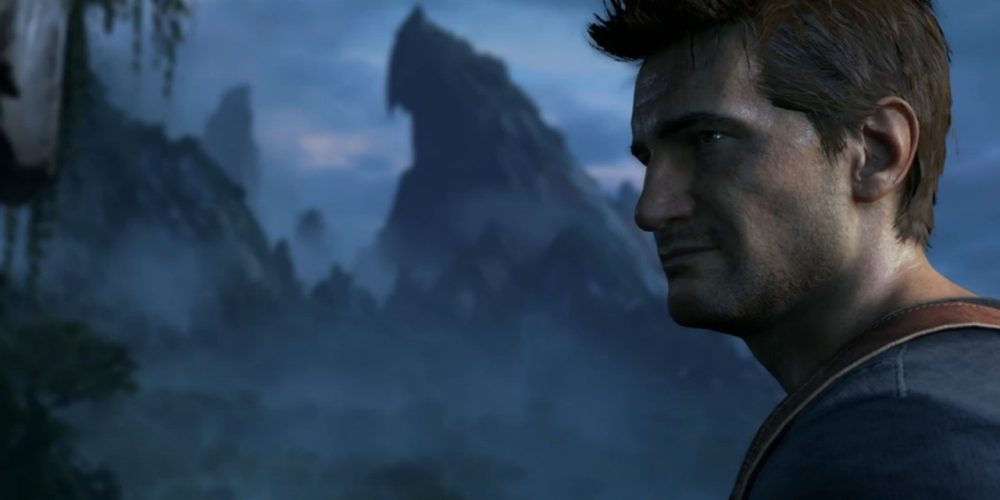
EXAMPLE: Nathan Drake, Uncharted Series
© Naughty Dog
Our wise cracking hero endures some pretty traumatic circumstances throughout his journey. He regularly has entire groups of people trying to kill him, sometimes with rocket launchers. He has killed thousands of men (and in fact the player is awarded with a trophy called “Ludonarrative Dissonance” for doing so). His mother died by suicide, his father gave up care of him, and he lived with the belief he had watched his brother die for years.
And yet Nate is never without a jig in his step and a wry comment. He uses humour to balance out the negative, to put a silver lining on the clouds. This is a very mature defence mechanism and one, if used in moderation, that can make life feel that bit easier. Of course, Nate is an exaggerated example and if anything he’s probably a murderer with antisocial personality disorder but…that’s a story for another day.